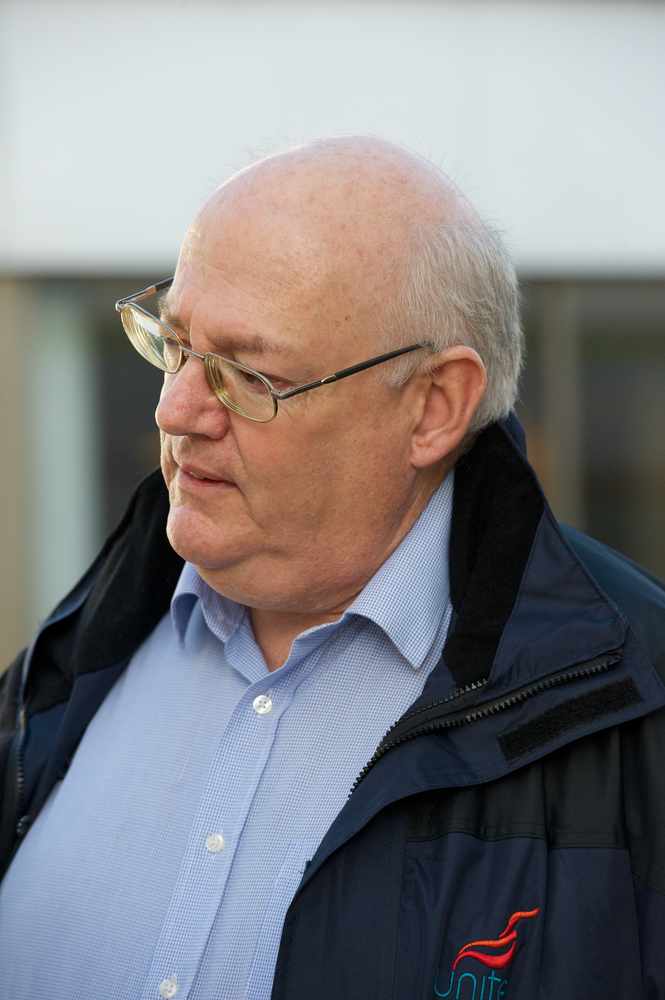Senator Alan Maclean said that the States Employment Board, which sets public-sector pay, was open to discussing options put forward by union representatives but that if any improved offer was made the money would almost certainly have to be diverted from other key States projects.
He added that talk of potential strike action was ‘disappointing’ but that the pay proposals were an important part of a package of measures designed to help plug a predicted £145 million financial shortfall by 2019, while also ensuring that compulsory redundancies were kept to a minimum.

Last week, union representatives for Prospect, which represents many of the Island’s civil servants, said that co-ordinated strikes could begin as early as next month, while Unite, the Island’s biggest union, voted to reject the pay freeze and staff cuts in an indicative survey.
All public-sector workers are this year set to have their pay frozen, with the exception of nurses and midwives, who have been offered a 0.4 per cent increase.
Senator Maclean, who sits on the employment board, said that by saving money through freezing public-sector pay, the States would be able to ‘invest in key areas such as health and education’.
He said: ‘We understand the strength of feeling but this is part of a package of measures designed to create a more sustainable public service.
‘We are obviously disappointed by the comments made about potential industrial action and we absolutely need to work hard with our staff and the unions, which is something that we are still very keen to do. Those discussions are ongoing.
‘The unions have said that there are alternatives, so it is up to them to put those forward. If the unions came back with a solution that is workable and durable, then of course we will give those proper consideration.
‘Ultimately, we have a target that we have to hit and this, I believe, is the best way to deliver a quality public service that is affordable and sustainable. At this stage, we don’t see any viable alternatives.
‘If the pay awards were to change, then the money would have to be found from somewhere else. If we are unable to save enough money, then that ultimately puts more jobs at risk, which is not helpful to anyone.’
Senator Maclean also ruled out introducing additional charges and taxes to cover any public-sector pay increase.
He added: ‘I hope that the unions and our staff will realise the difficult balance we have to strike and we are hoping to develop the relationship with the unions that has been improved over the last few years.’

To plug the gap ministers have suggested a budget-balancing programme of £130 million in new income – £35 million from a new health charge, £35 million in other efficiency savings including benefit changes and ‘user pays’ services charges and £60 million in staff savings.
The money is needed to combat lower-than-expected revenue, coupled with increasing funding pressures on key areas such as health and education.
No measures have been ruled out, with compulsory public sector jobs cuts being considered for the first time in order to save money. However, ministers have moved to reassure employees that forced job losses will be a last resort.
Other ways to cut costs and generate income include a possible sewage tax, user-pays charges such as paying for the disposal of solid waste and a health care charge.
The States’ expert economic advisers, the Fiscal Policy Panel, have recommended that revenue and expenditure be balanced at the same time as continuing investment, to support growth and competitiveness.
Earlier forecasts indicated a potential shortfall of £50 million in 2019 if current spending levels continued, but that prediction did not include subsequent funding requests made by departments – particularly Health and Education – to pay for the expected increased use.
Treasury Minister Alan Maclean, who yesterday unveiled the new savings plan at an Institute of Directors lunch, said: ‘What I’m concerned about is making sure we learn from the past and make sure we continue to have strong public finances.
‘Hindsight is a great thing and it’s been proven that our optimism wasn’t as justified as it could have been, but we live in a particularly volatile world at the moment.
‘We’re not in a bad place now compared to most jurisdictions, who are running massive deficits without the types of assets we have available.’
When asked about potential job cuts Senator Maclean said: ‘I want to reassure people that we are looking at other measures first in terms of efficiencies and cost-cutting.
‘We are doing what I think people expect us to do – making sure the system is as efficient as it can be while delivering the services that people expect.’
Chief Minister Ian Gorst added: ‘What we’ve shown is that if we want to keep taxes low and continue to deliver a balanced budget, we are going to have to re-prioritise some of our spending and redesign government.’
The reshuffled savings/income plan comes against a backdrop of lower-than-expected revenue for the States, which followed the global and then European downturn in recent years.






